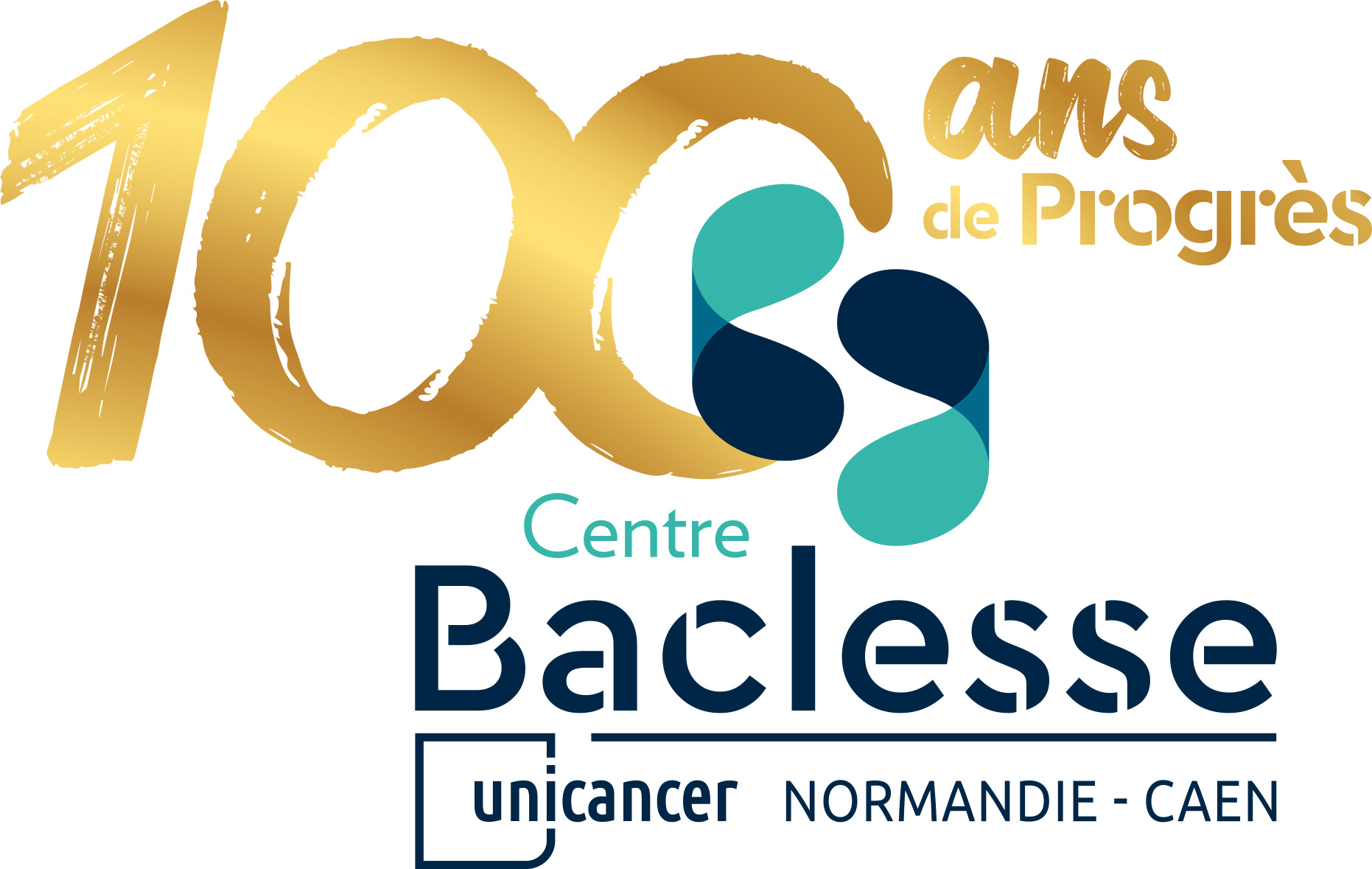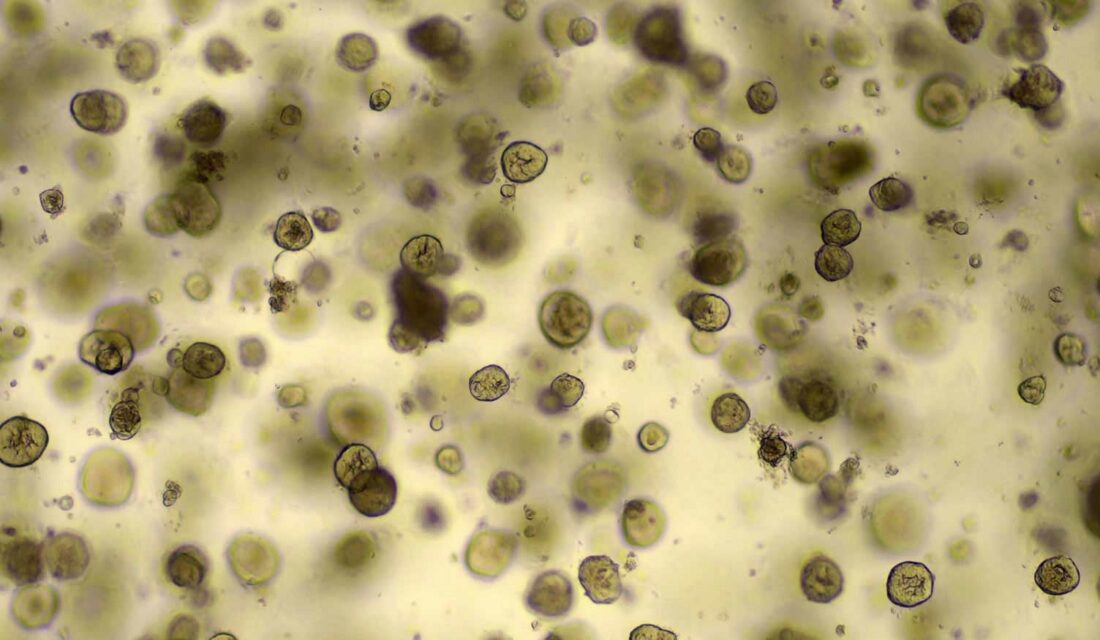Photo © ORGAPRED: miniature cancerous tumours.
Article taken from Prisme, the University of Caen Normandy’s research review (N°12 – July 2021)
The ORGAPRED platform produces miniature copies of cancerous tumours, from genuine cell samples taken from tumoral tissue. The aim? To use these ‘mini-tumours’ to test and predict patient response to medicinal treatments. Explanations.
In vitro, in vivo… and now ex vivo
Research in health traditionally relies on in vitro (‘under glass’) analyses on laboratory-cultivated cells which, if they are conclusive, are followed by in vivo (‘in living organisms’) studies, the latter proving to be more pertinent with regard to the complexity of biological systems. Nevertheless, even if analyses are conclusive, the results obtained in vitro remain incomplete, for these cells are spread on the base of cylindrical dishes and are isolated from their environment.
An intermediate solution could come from ex vivo analyses (‘outside living organisms’) on 3D reproductions of organs, tumours or tissue, referred to as ‘organoids’. ‘Organoids have the characteristics and functions that reflect the complexity of living organisms,’ indicates Laurent Poulain, doctor in biology and co-director of the ORGAPRED platform. ‘This means that they are excellent tools for clinical research and fundamental research.’
Towards predictive medicine
In Caen, the ANTICIPE research unit has been working on ovarian cancer for over 30 years. ‘Recurrence is frequent in the case of ovarian cancer, for certain tumours deploy mechanisms of resistance to first-line treatment,’ Laurent Poulain explains. Hence the necessity to identify these mechanisms to predict response to treatment and to propose personalised therapeutic protocols.
‘It is the dream of any oncologist to be able to produce a tumour organoid using cells sampled from a patient’s tumour, then to submit it to different treatment modalities, in order to verify which one will be the most effective for the patient in question!’
In 2017, the ANTICIPE research unit began its work in this specific field – the first step on a long road involving methodological prowess. ‘It involves recovering cells which, once placed in a matrix enhanced with various growth factors, will evolve to form 3D micro-tumours that are very close to the original tumour,’ highlights Louis-Bastien Weiswald, doctor in biology and co-director of the ORGAPRED platform.
‘It has taken us three years to perfect our culture, analysis and conservation methods for ovarian tumour organoids.’
This opens a whole range of prospects: organoids could also be used to evaluate the action of a given pharmaceutical molecule, to validate new therapeutic strategies or to identify biomarkers of response to treatment.
Satisfying the needs of researchers and clinicians
This know-how was fast to attract requests from outside: hence the idea to develop a platform devoted to the production of tumour organoids. ‘We approached a research unit in Lille, which was also working on these methods,’ Louis-Bastien Weiswald adds.
‘We have worked in collaboration to create two partner platforms and to coordinate our work in order to best satisfy the needs of researchers and clinicians from throughout the Cancéropôle Nord-Ouest area.’ Hence, the creation of ORGAPRED in Caen in 2020. The platform already boasts a catalogue of around 40 organoid lines derived from cancerous ovarian, upper aero-digestive tract, colon, pancreatic and breast tumours.
In Lille, the ORGARES platform specialises in organoids derived from cancerous lung and digestive tumours. Structuring this activity is continuing on a national level, with the network of ‘Organoid’ platforms, certified by the CNRS (National Centre for Scientific Research) in 2021. ‘These burgeoning new analysis methods will become essential in the future: the idea is to coordinate our research so that we work together, share know-how and exchange on our models, to serve research in healthcare,’ Laurent Poulain concludes.
The ORGAPRED platform is co-funded by the European Union and the Normandy Regional Council, within the framework of the ERDF/ESF 2014-2020 operational programme, and by the French State.
- For further information:




